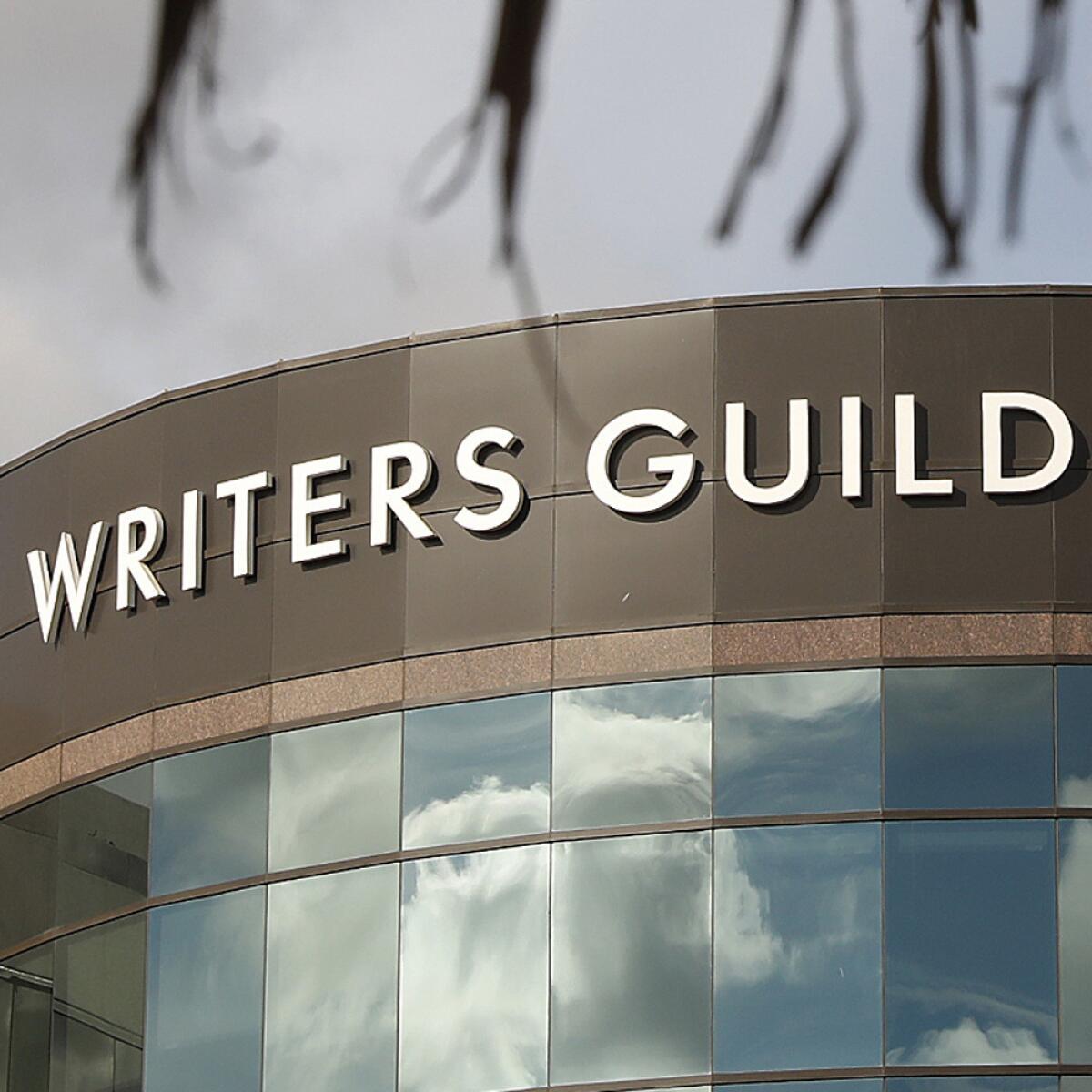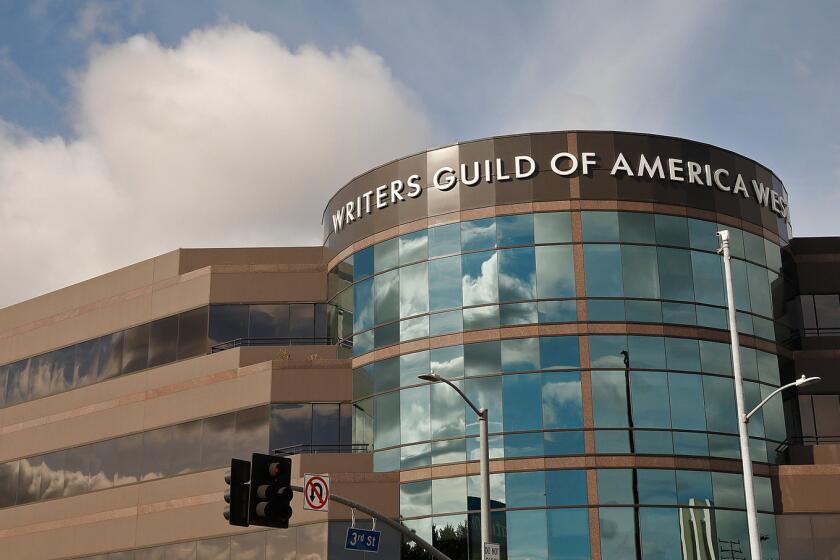Coronavirus crisis pushes WGA and studios closer to bargaining table

- Share via
The Writers Guild of America and a group representing the major studios appear to have narrowed their differences over whether and when to begin potentially contentious negotiations for a new film and TV television contract.
WGA West Executive Director David Young said in a letter to the president of the Alliance of Motion Picture and Television Producers, or AMPTP, that the union is willing to extend its current contract, which expires May 1, to June 30. The extension had previously been proposed by the studios.
Young recommended the sides exchange bargaining proposals by May 1 and begin negotiations via video and telephone conference on the week of May 11.
“This will give both sides a week to analyze the opening proposals, while still leaving almost eight weeks in which to conduct negotiations,” Young wrote in his letter dated April 15.
WGA spokesman Neal Sacharow said there is no agreement yet with the AMPTP, which declined to comment.
The WGA had previously pushed for the contract to be extended until September. Many were predicting writers would stage their first walkout since 2007, but WGA leaders recently told members they would not seek a strike vote during the COVID-19 pandemic, which has had a devastating effect on Hollywood.
“You’ve expressed frustration that it has taken until now to provide you with a response to the AMPTP’s proposed contract extension and dates for commencing negotiations,” Young wrote. “But I hardly need to remind you the COVID-19 pandemic poses unprecedented challenges to the conduct of meaningful, and we hope successful, negotiations. The effect of the crisis is particularly disruptive for the guild, which represents the interests of 15,000 writers located throughout the country, with whom we regularly must communicate about bargaining objectives and developments.”
Citing the crisis, Young said that by Friday the union would like to see the trustees of the WGA Health Fund extend eligibility through the end of the year to participants who will lose their coverage because they don’t meet the earnings threshold.
In a follow-up email to Young obtained by the Times, AMPTP President Carol Lombardini called the WGA health plan “an entirely separate matter,” but said she would address the issue with alliance members. “I look forward to starting what will hopefully be a productive and successful negotiating session,” Lombardini wrote.
The negotiations probably will have to address how the industry will change after the pandemic.
Guild leaders also want to ensure that writers are getting their fair share of profits from streaming services, which have grown in popularity as more people are sheltering at home. Some streamers are opting for shorter seasons and writers are losing out on money that they would normally get through reruns or syndication of their shows.
“The question for the Writers Guild is, how are our members being compensated?” WGA West President David Goodman told the L.A. Times this year. “Are we keeping up with this enormous growth and how do we make sure to protect our members in this new business model?”
The COVID-19 crisis delayed bargaining between the Writers Guild of America and the major studios. Now, the sides can’t agree on how long they should extend the current film and TV contract.
Young was responding to an earlier letter from Lombardini about the proposed contract extension.
“Moving forward with the goal of reaching an agreement by June 30 is essential to protect the tens of thousands of people who depend on this industry for a livelihood, including writers represented by the WGA,” Lombardini wrote in the letter. “Both of us share the responsibility of creating the conditions that will make it possible for them — many of whom have suffered severe hardships in the form of loss of income.”
A new deal structure could have a significant impact on the long-term earnings of show creators.
The WGA also has yet to reach an agreement with the Assn. of Talent Agents over a new code of conduct. The union has negotiated individual deals with talent agencies but remains in a dispute with major talent agencies such as William Morris Endeavor, United Talent Agency, Creative Artists Agency and ICM Partners over industry practices.
More to Read
Inside the business of entertainment
The Wide Shot brings you news, analysis and insights on everything from streaming wars to production — and what it all means for the future.
You may occasionally receive promotional content from the Los Angeles Times.














